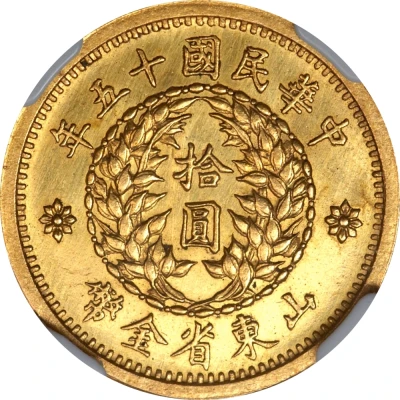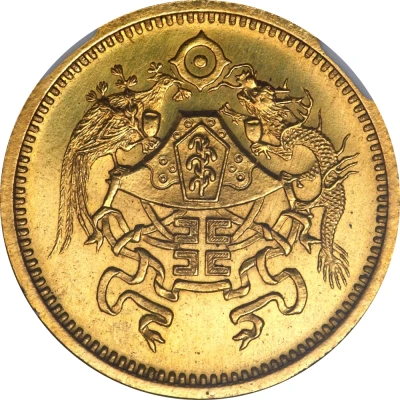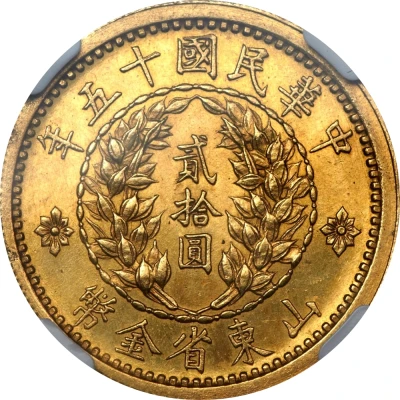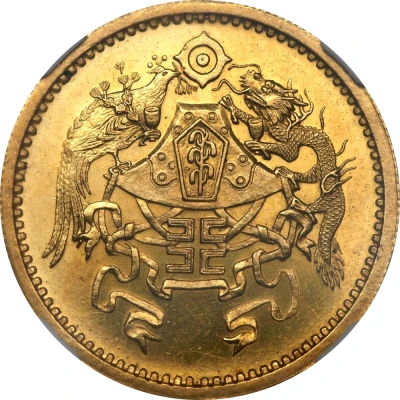10 Yuan Pattern; Zhang Zongchang type; pewter
15 (1926) year| Pewter | - | - |
| Issuer | Shantung Province |
|---|---|
| Governor | Zhang Zongchang (1925-1928) |
| Type | Pattern |
| Year | 15 (1926) |
| Calendar | Chinese republican |
| Value | 10 Yuan |
| Currency | Yuan (1904-1949) |
| Composition | Pewter |
| Shape | Round |
| Demonetized | Yes |
| Updated | 2024-10-03 |
| Numista | N#287955 |
|---|---|
| Rarity index | 100% |
Reverse
Old emble of China (the Twelve Symbols national emblem, 1913-1928) consisting of a dragon and a phoenix holding sacraficial cups over an axe head.
Edge
Reeded.
Comment
These were issued by order of the warlord Zhang Zongchang, the military governor of Shantung Province from 1925 to 1928, and was considered one of the most ruthless of the Chinese warlords. Besides being a part-time bandit-chief, he was a compulsive gambler and a noted womanizer (keeping between 30 and 50 concubines of different nationalities). In 1928, during the Northern Expedition, he suffered a crushing defeat and fled to Japan, ending his reign. In 1932, while visiting Shantung, he was assassinated.Interesting fact
One interesting fact about the Pattern 10 Yuan (Pattern; Zhang Zongchang type; pewter) 15 (1926) from Shantung Province made of Pewter is that it is a rare and highly sought-after coin among collectors due to its unique design and historical significance. The coin features a portrait of Zhang Zongchang, a prominent Chinese warlord and politician, on one side, and a traditional Chinese dragon on the other. The use of pewter in its minting process also adds to its distinctiveness, as it was a common material used in the production of Chinese coins during the early 20th century. As a result, this coin has become a prized possession among collectors of Chinese numismatics, with some rare specimens selling for high prices at auctions.



